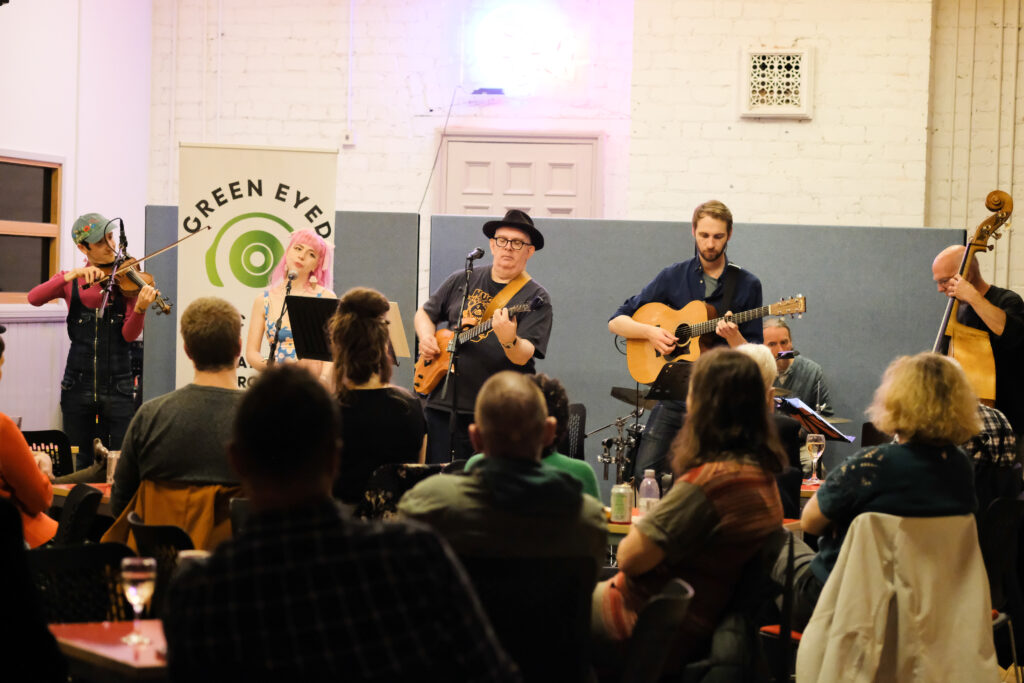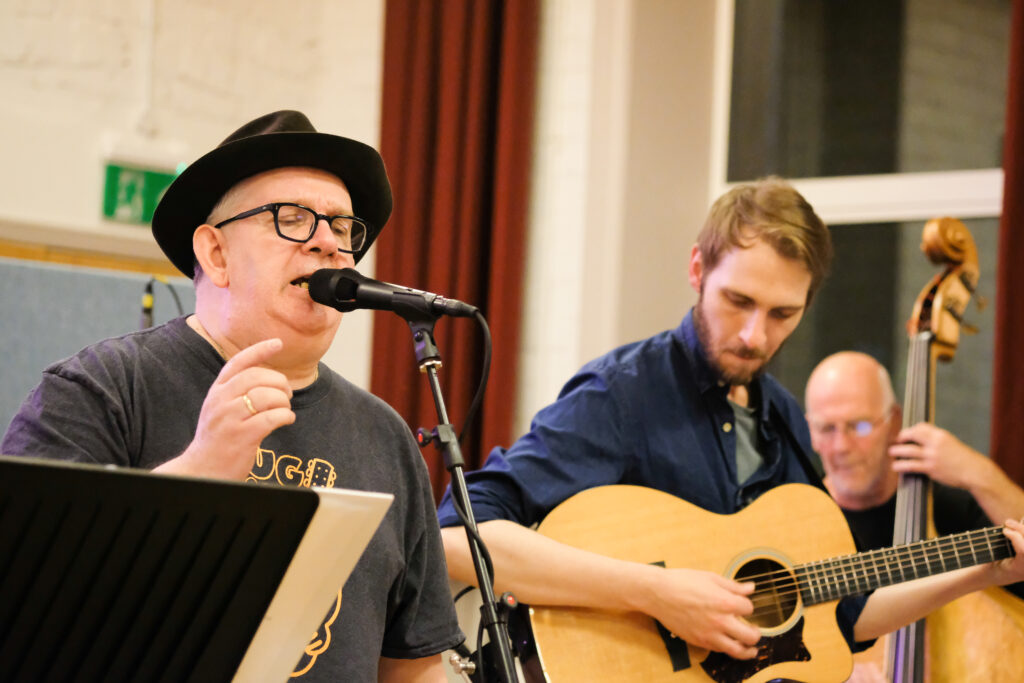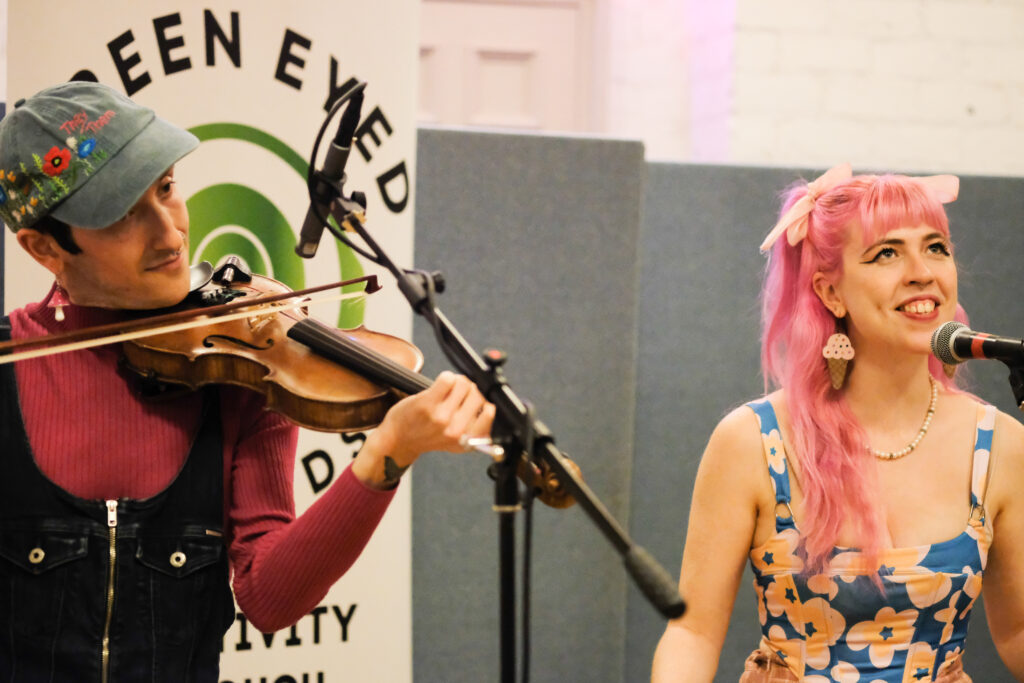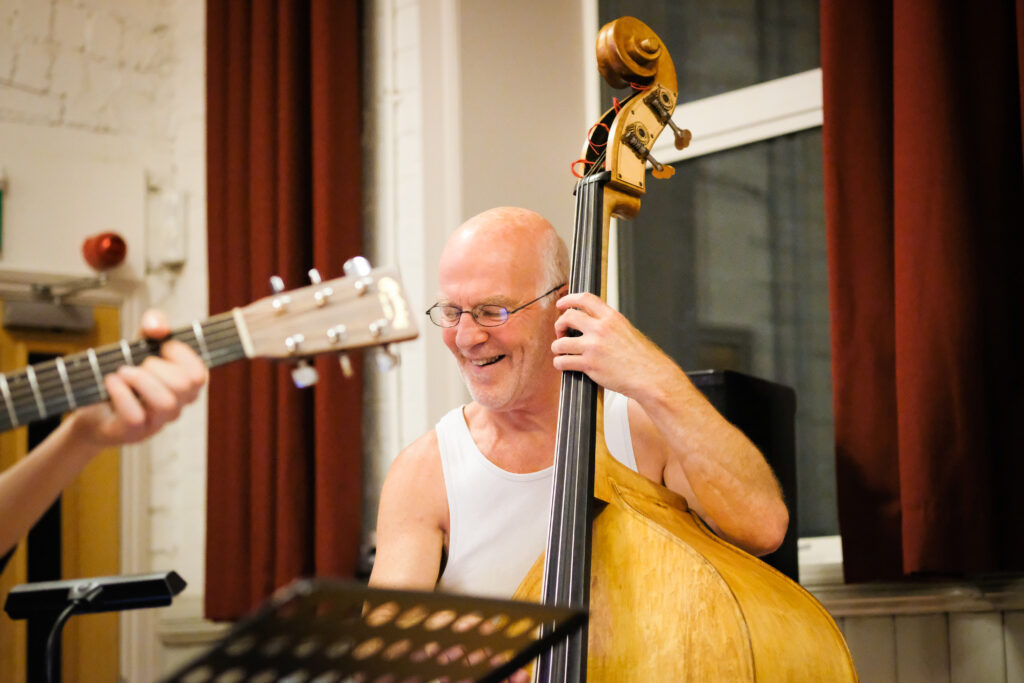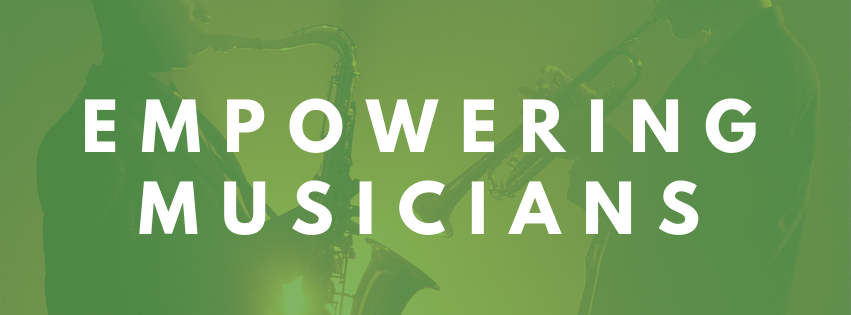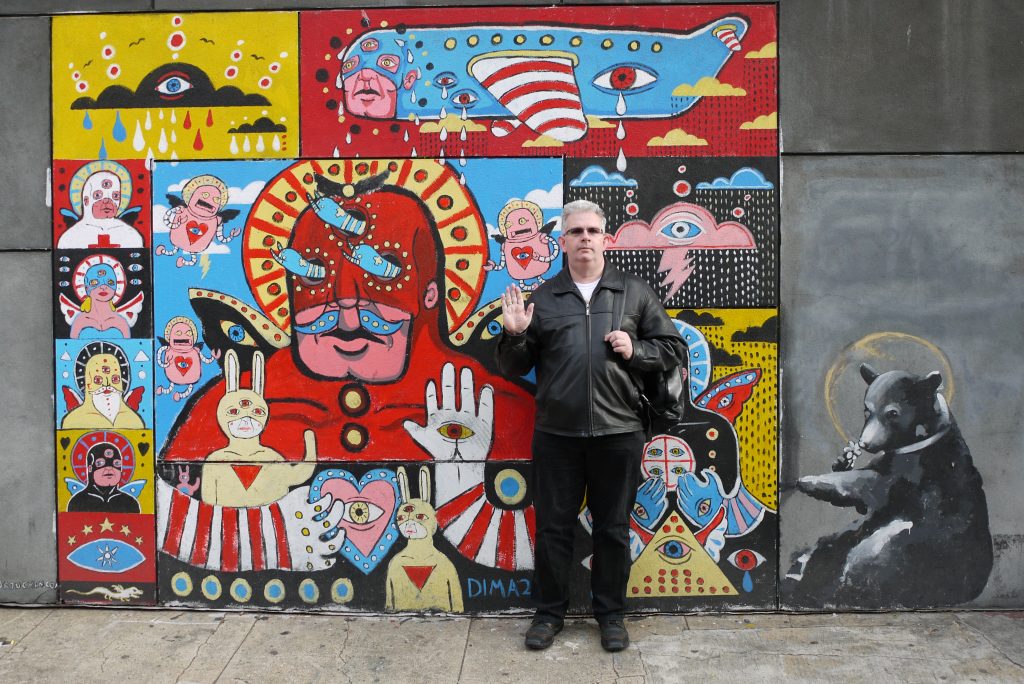I have massive respect from anyone working in the arts and I set up Green Eyed Records as a music resource for artists who value the concept of “creativity though collaboration” as in my view there is an increasing problem for many artists to reach a wider audience. I come from a background in business and have set up and run multi million pound concerns and in my non music capacity work as a communication traininer in the UK, Europe, USA and Asia. I’m fascinated by “the music industry” and especially many of the myths of success. GER has allowed me to connect with many terrific musicians and its be a great insight into what its like for working musicians.
GER offers support for artists in many forms including marketing advice, technical advice, business sponsorship, live playing opportunities and other support. I talked about this to music journalist Sylvie Simmons when she interviewed me about GER. I’m pleased to have been able to offer tangible help to a number of artists to help them reach a wider audience for their work. This help has been in offering equiptment, business advice, recommendations for professional services and financial assistance.
Myth v Reality of artist income streams
In recent years I’ve had a number of artists lament the lack of income from working as music professionals. Being a “music professional” means that your primary income comes from music as opposed to being a hobbyist where you have a major source of income that funds musical activity. Nothing wrong with being a hobbyist of course and there are many advantages to having a separate income to fund creative interests.
Some artists really lean heavily on their fans goodwill to provide all manner of free assistance which of course is well meant but can in some instances not be the best long term strategy for a variety of reasons, including an over reliance on one source of income. In these tougher economic times many people have less disposable income and have to think far more carefully about what they spend their money on. Streaming has also hugely affected artist income and two artists in recent years have commented that their entire earnings per year are less that 20k, which doesn’t go far if you have a family to support. Yes, its great to create music for the love of it, but those with families need to be realistic about paying the bills as well.
Organisational and basic business skills
The problem for many artists is that although they may have some creative ability, they lack essential basic business and organizational skills. As my wife would often comment “They don’t know what they don’t know” and most months are spent on social media bemoaning the perceived opportunities for musicians and how disadvantaged they are. In short its always somebody else’s fault for their financial situation! Everyone is of course welcome to their own opinions but there’s a huge amount of optimistic thinking and in my recent interview with Jim Glennie founder of James, he pointed out that many people are more interested in perceived fame than actually creating music. From what I hear music colleges do little to create realistic expectations for students and of course its a bit of a shock for many when they leave the world of academia into the real world.
One of the central problems for many independent artists is reaching a wider audience beyond their core fans. Music distribution requires funding and these days unless you have external financial support, this can be a limiting factor for many artists. I’m increasingly seeing requests for fans to underwrite artist activities. Yes, funding for the creation of music products is well established but now this seems to have expanded to assisting with all manner of other expenses which are traditionally funded by the artist themselves. This is an observation rather than a criticism and of course its always been a tough call to work professionally in the arts.
Covid 19 and the current tough economic situation in the UK has affected attendance at gigs and festivals, and its been reported that even the most successful bands like The Rolling Stones have a downturn in ticket sales. In 2022 many are wondering if they can afford to invest 95 quid to stand in a field to watch a band. Niche festivals also are not selling out as easily as in days gone by and one major niche music artist has only sold 10% of tickets in a relatively small venue for a few hundred people and the public can still get front row seats, a few weeks before the gig. This is for a sub 30 quid ticket as well…
Talent show misconceptions and there;s no quick fix to “fame”
In recent years I’m increasingly hearing all manner of interesting insights into how talent shows operate. Of course since the days of “Opportunity Knocks” talent shows on TV exist primarily to boost TV ratings as opposed to being a facility to assist with making artists famous! Yes, in a very few instances some individuals can launch a career from such exposure, but this is pretty rare. In recent times I read an interesting article that many didn’t pick up on about how scouts work for such shows. Often the car crash auditions and performances are what create the most impact in such shows, but what is now coming to light is that the talent show scouts will seek out really oddball acts that they know won’t progress in the competition, but will make for what they consider “good entertainment” for the audiences. These acts are encouraged simply to appear on the shows rather than go though the formal audition process where they are screening for musical talent. Anyone who imagines they can appear on such a show and not have to sign a contract is delusional in the extreme of course, but this is commonplace in discussions on social media.
Another issue is that many artists are well known on the “talent show circuit” and are not exactly unknown quantities. As I have often commented “The music business” is like any other business, where there are trades and agreements. The Sun has reported that, of the 60 acts who have had auditions aired during the 2022 series of the reality show, 25% of them already have some kind of professional profile! I’m personally not a fan of these shows which are in my view not really about creating great music and the whole backstory formula is now pretty well worn.
I have the greatest respect for those who take this professional route
This article is not to promote doom and gloom but rather to note the changing trends in the public’s buying habits and the need to adjust expectations as artists, to avoid being disadvantaged. That said its increasingly tough for anyone wanting to earn a living purely from artistic work.
I have total admiration for anyone wanting to earn a living as an artist. Personally I hate the idea as it would totally compromise what I want to do and I’d far prefer to fund all my music projects from other work, so I continue to have total creative freedom. I’m seeing a number of artists really struggle to make a living and that’s often because they miss basic marketing opportunities and actually continue to insist that their music alone will win the day. Its a great romantic idea, but everyone I have ever spoken to who has some degree of professional success, appreciates that music alone is not enough. I wish that were not the case, but ultimately just like film producers and authors, very few make a reasonable living from such work. My conversation with Jim Glennie confirmed many of my suspicions and we both hold the view that a new model will emerge for artists and my thoughts are that this will be based more on collaboration than in previous times.
